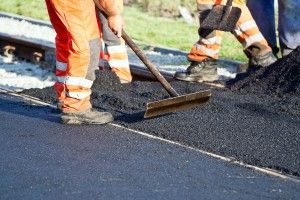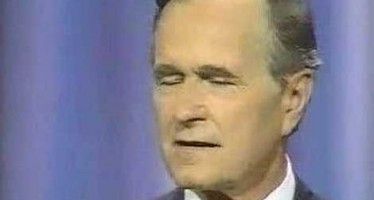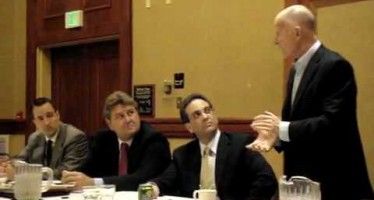Legislators propose differing plans to fund state-wide highway repair
 There is consensus that California’s roads and highways must be fixed. There is no consensus how the fix should be paid for.
There is consensus that California’s roads and highways must be fixed. There is no consensus how the fix should be paid for.
A Special Session legislative meeting Friday was called a first step in finding agreement to the funding problem. The Democrats see tax increases as part of the mix; Republicans want to prioritize the use of existing dollars for the roads. The tricky part of compromise is the push for any taxes in the context of so many other tax increases that could be presented to voters in 2016.
Governor Jerry Brown has proposed a yearly funding package for the roads of $3.6 billion. The package includes a 6-cent gasoline tax increase, an 11-cent diesel tax increase — both tied to inflation — a $65 car fee and cap-and-trade funds. His proposal is little more than half what legislative Democrats and a coalition of business, labor and construction groups have called for.
Republican proposals also include cap-and-trade money. In this case, the money would be used directly for the roads. The governor’s plan would funnel cap-and- trade dollars to bus lanes and rail. The Republicans also would trim CalTrans staff, direct weight fees and other transportation monies exclusively for the roads and employ other methods without raising taxes.
Not only have the Republicans expressed opposition to tax increases but there is no certainty that all Democratic legislators would support a tax increase.
The informal group of moderate Democrats who banned together to stop the provision to cut petroleum use in half over 15 years in climate change bill SB350 objected that their constituents would pay a higher cost for commuting. And cap-and-trade now covers gasoline refining and has raised the cost of gasoline about 10-cents a gallon. Additional taxes on gasoline would adversely affect many of their constituents, the moderate Democrats believe.
The governor wants the funding package to move through the Legislature quickly for strategic reasons.
For one thing, the plunging cost of gasoline may undermine the argument that the gas tax increase will hurt low-income drivers. Even a tax increase on gas would leave the cost of a gallon of gasoline well below recent price levels.
If debate lingers until next year, it becomes an issue for candidates running for office in an election year. Remember, a car fee increase was a major reason for a governor’s recall just a decade ago.
If a package of gasoline taxes and car fees should end up on the ballot it would likely get a cold stare from the voters. Likely there will be a number of tax increases on the November ballot. An extension of Proposition 30, a cigarette tax, perhaps a property tax, maybe others could be on that ballot. A roads funding package will not look so good in the context of all these tax increase proposals.
The roads and highways are the veins and arteries that pump life into our economic system. They must be cared for to prevent the economic system from getting a form of man-made sclerosis. The governor and legislators during the Special Session are walking a tightrope to balance the need to improve the roads and highways with voters being turned-off by a slew of tax proposals.
Related Articles
Campus Political Rally
Katy Grimes: A California State University college faculty association has organized a rally for today, encouraging urging students to vote YES
Meg: Stop lying about Jerry and taxes
John Seiler: Meg Whitman continues running commercials based on disproved assertions about Jerry Brown and taxes. It’s especially grating that
Does Jerry Brown Break Campaign Law?
Sacramento talk radio host Eric Hogue discovered this very interesting audio and video of Jerry Brown meeting with Labor International




